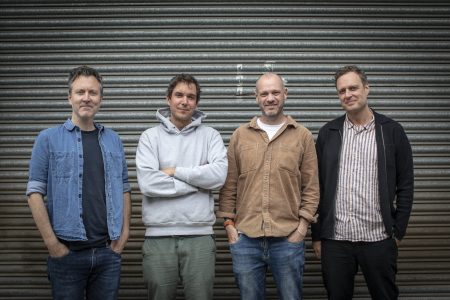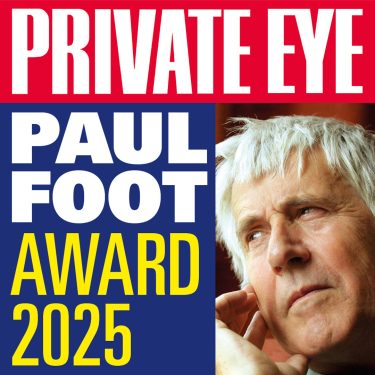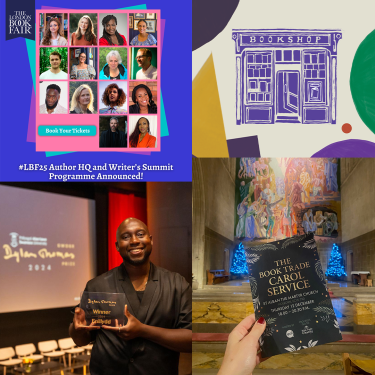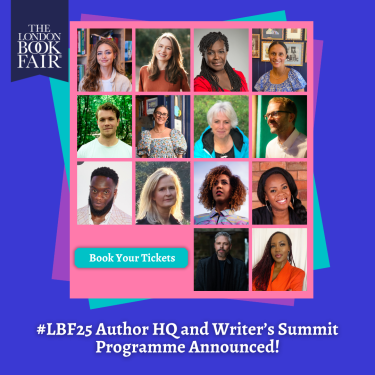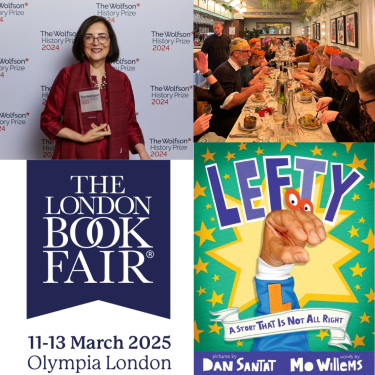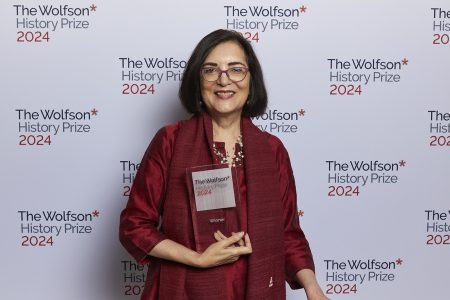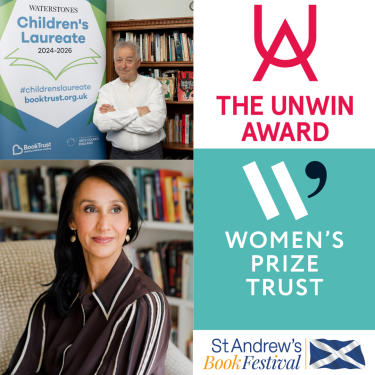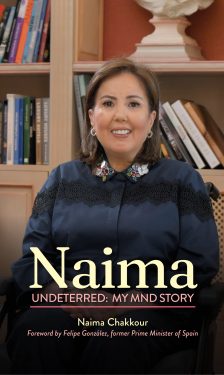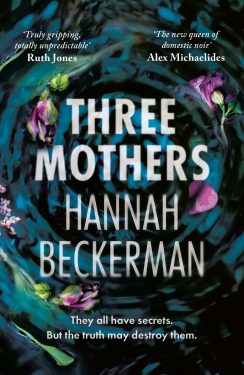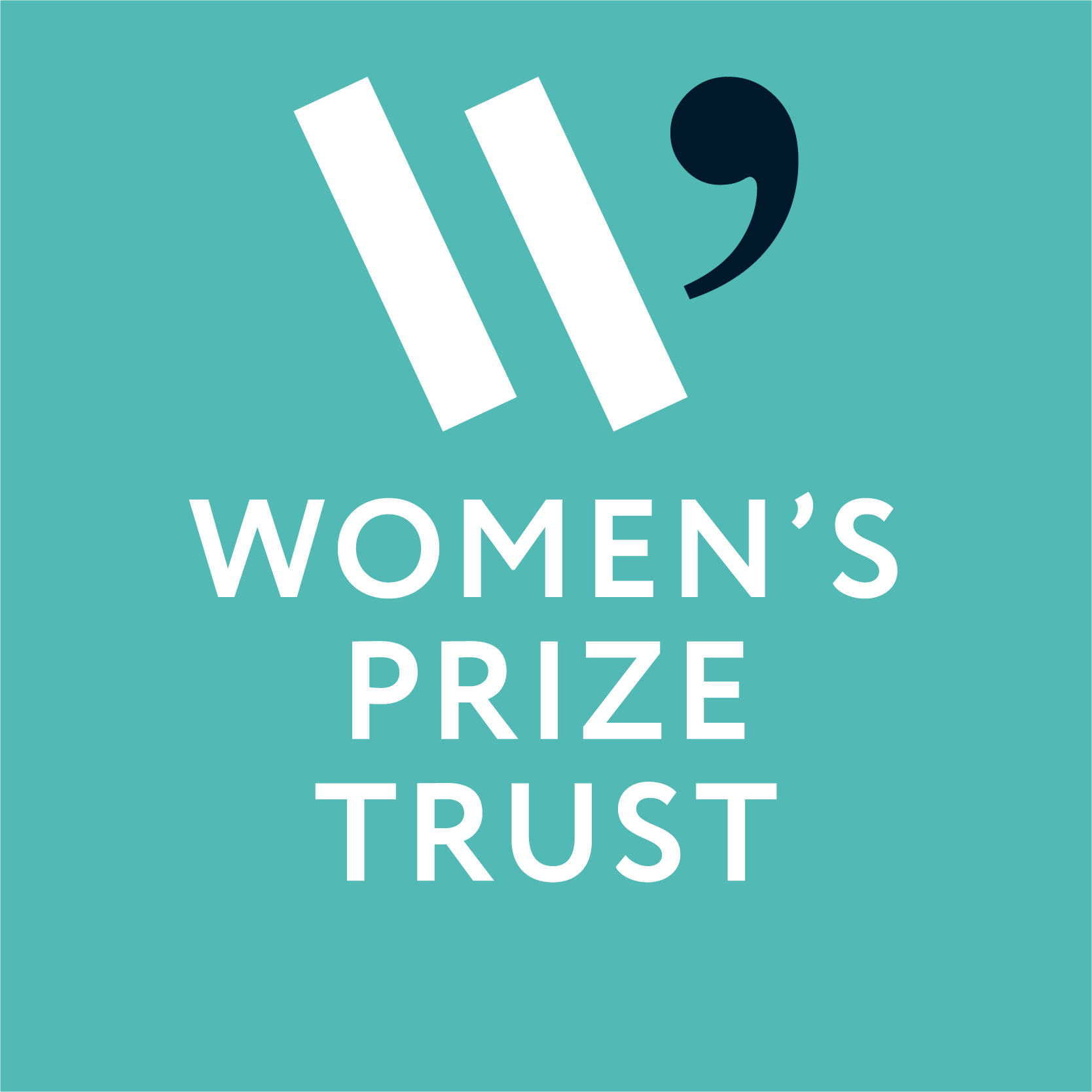
Big Give | 3rd – 10th December 2024 | @WomensPrize
London, 26 November: The Women’s Prize Trust – the registered charity creating equitable opportunities for women in the world of books – today launches its ‘Big Give’ Christmas fundraising appeal, seeking financial support from readers, writers and publishers to expand its 2025 Writers’ Room programme.
Data published today in the Trust’s Impact Report: 30 Years of The Women’s Prize for Fiction shows that in the current book ecosystem, it is significantly more challenging to launch and sustain a writing career for women from lower socio-economic and global majority backgrounds, as well as those living with disabilities and chronic illnesses.
The Women’s Prize Trust is aiming to raise £20,000 between 3rd–10th December, which will be doubled by the Big Give Christmas Challenge. These vital funds will make it possible for the Trust to continue working to develop a practical, inclusive, free-to-access writers’ programme that targets these underrepresented groups, enabling them to reach 5,000 aspiring writers in the first year and 15,000 over three years.
Claire Shanahan, Executive Director of the Women’s Prize Trust, says:
“More women are writing professionally than ever before, and the perception of what and how they can write has improved significantly over the lifespan of the Women’s Prize for Fiction. However, it is clear from research that we have more work to do to achieve genuine equity in the world of books. The gender pay gap for writers stands at an alarming 36%, 23% higher than the national average: an issue that is exacerbated for writers from lower socio-economic or global majority backgrounds and for those who live with a disability or long-term health condition.
The Women’s Prize is committed to changing this at grassroots level: we believe that all women should have the access and opportunity to reach their full potential, and that society benefits from a rich and varied creative sector. We hope our trade partners, as well as the readers and writers in the Women’s Prize community, will join us to open the door for the writers of tomorrow – it is both our responsibility and an opportunity at this critical time for our polarised society.”
Data in the Trust’s Impact Report shows that despite the fact that the UK market share for female fiction writers has grown from 39% in 1998 to 57% in 2024, the gender pay gap for writers still sits at 36%. The data presented also serves as a reminder that significant barriers for writers from particular demographic groups remain firmly in place. While it’s common for writers to experience challenges in the early stages of their career, a writer’s background and experience starkly increase the challenges they face: 76% of writers from global majority backgrounds – compared to 67% of white writers – experience lack of income or expectation of it, whilst 74% of writers who are disabled or have a long-term health condition have a lack of income, compared to 67% of non-disabled writers. Figures also show that the proportion of working-class writers has halved since the 1970s.
The inequity for female non-fiction authors is most stark. The number of non-fiction books by women in the TCM Top 50 bestseller lists by category in 2023 (commissioned by the Women’s Prize Trust from Nielsen BookData and reported today) is hugely disproportionate compared to the number of books by men. In the Top 50 popular science titles, only 11% are written by women. Similarly, in politics only 17% are by women, 19% for sport, 29% for biographies and autobiographies, and 32% for self-improvement and popular psychology.
Under its Writers’ Room brand, the charity will increase the number of free writing workshops it offers, develop a new series of online and regional networking events to introduce writers to experts in the industry, and substantially bolster its toolkit of online resources for aspiring writers. It will also launch for the first time bespoke mentorships to nurture early-careers specifically for writers from underrepresented backgrounds. This programme has been designed with input from new writers, and will focus on developing writing skills, navigating the world of publishing, and building confidence, whilst nurturing a community of creatives – all with the aim to facilitate writing as a viable and fulfilling career.
How to support the Writers’ Room:
- Personal donations made via the Women’s Prize Trust’s page on the Big Give website – from 12pm Tuesday 3 Dec to 12pm Tuesday 10 December – will be doubled.
- Personal donations can be made outside of this window via the Women’s Prize Trust’s website
- To make a corporate donation or enquire about volunteering on the Writers’ Room programme, contact Executive Director Claire Shanahan: Claire@womensprize.com
Each donation via the Big Give will be doubled to help fund:
- £10 → £20 two free workshop tickets
- £50 → £100 free workshop tickets for 10 emerging writers
- £100 → £200 a networking event
- £500 → £1000 a mentoring relationship
- £1000 → £2000 increasing outreach to underrepresented writers
For general information:
- Contact PR Director: Christian Lewis: Christian@womensprize.com
Notes for Editors
The Women’s Prize for Fiction Impact Report highlights:
- Over 30 years, the Women’s Prize for Fiction has changed the landscape for women writers and for readers all over the world. From creating bestsellers to launching debut careers, from cultivating a legion of loyal readers, listeners and influencers, from generating many millions of pounds for booksellers, publishers and authors themselves, to fostering a global community for female creatives, the Prize has provided platforms online and in the real world for readers and writers. The Women’s Prize for Fiction has shifted the conversation and – ultimately – changed the perception of what and how women can write.
- In 1998, when book sales began to be recorded in the UK (two years after the first Women’s Prize for Fiction was announced) books written by women made up just 39% of the top 500 bestseller list. By 2023, this had increased to 57%.
- Average uplift in sales for a winning book in the month after the announcement is 230%
- At the end of the 2024 Prize cycle, the library for the Women’s Prize for Fiction has showcased 562 nominated titles, written by women from all over the world, from Sweden, Pakistan and China, to UAE, Barbados and Ghana.
Helping the writers of tomorrow:
- From early on in its history, the Women’s Prize has been dedicated to running initiatives for emerging writers. From its Orange Award and First Chapter competition to ‘Discoveries’, its programme for unagented and unpublished writers in association with Audible, Curtis Brown literary and talent agency, and Curtis Brown Creative. This celebrates its fifth anniversary in 2025 and has been particularly impactful with almost 40% of the cohort securing literary representation and seven book deals contracted.
- The Writers Room will continue this work supporting women from underrepresented backgrounds who aspire to write. This will include more free resources; more workshops on writing craft with an increased number of free tickets; new networking opportunities across the UK; and new mentoring relationships.
Social impact:
- Reaching readers: The Trust supports a selection of reading groups and libraries each year to engage with nominated books, providing copies to readers from a variety of backgrounds. They will continue to work with partners, from foodbanks, hospitals and other charities such as Book Aid or the Royal National Institute for the Blind, to prison reading groups, workplace book clubs, neighbourhood, intergenerational and faith groups.
More work to be done:
- Targeting authors underrepresented in publishing: Multiple reports commissioned by The Royal Society of Literature, Arts Council England, New Writing North, Writing West Midlands and others show that barriers are still firmly in place for women writers from specific demographic groups, including class, ethnicity, disability or geography.
- Supporting non-fiction female authors: Research commissioned in 2022 by the Women’s Prize Trust shows that female non-fiction writers are less likely to be reviewed in the UK national media and less likely to be shortlisted, or win, book prizes than their male counterparts. This impacts on the UK bestseller list, with only 34% of the top 500 bestselling nonfiction books in 2022 written by women. New data from Nielsen BookData commissioned by the charity in 2024 also shows that only 5% of philosophy books in the Top 50 bestselling titles in the UK in 2023 are authored by women, 8% of business books, 11% of science books, 17% of politics books, 30% of history books, and 32% of psychology books.
- Overcoming male reading bias: Research commissioned in 2024 by the Women’s Prize Trust from Nielsen BookData shows that only 19% of readers of the top 20 bestselling female fiction authors in 2023, including Jane Austen, Agatha Christie, Harper Lee, and the non-fiction author, Rhonda Byrne, are male. The split is more even for the top 20 bestselling male fiction authors includingGeorge Orwell, Charles Dickens, Stephen King and James Patterson, as well as Prince Harry, Robert Kiyosaki and James Clear: 56% men and 44% women.
- Helping to address the gender pay gap: Research shared by CREATe Centre funded by the UK Authors’ Licensing and Collecting Society shows the gender pay gap for writers stands at 36%, whereas the national average is 13%, and continues to increase.
Read the full report here: https://womensprize.com/app/uploads/2024/11/Womens_Prize_Impact_Report_2024.pdf
Research
The reports referenced below, commissioned by The Royal Society of Literature, Arts Council England, New Writing North, Writing West Midlands and Northumbria University, show that barriers are still firmly in place for women writers from specific demographic groups, based on class, race, disability or geography, as well as those with intersectional backgrounds. Opportunities to participate in, and benefit from, creative writing are not available for all, whilst writing careers are more difficult to launch and sustain for certain groups of women. With the aim of eradicating these obstacles, the Women’s Prize Trust will expand its community of writers who collaborate, share, coach and mentor one another, ensuring the diverse experiences of contemporary lives are reflected in the books of tomorrow.
- Literature in the 21st Century: Understanding Models of Support for Literary Fiction (commonly referred to as the Canelo report) by Arts Council England (2017):
- “64% of white novelists had a literary agent represent their debut work against only 47% from a BAME background.”
- A Room of My Own report: What writers need to work Today by the Royal Society of Literature (2019):
- “While the majority of writers experience challenges early in their writing lives, a writer’s background, experience or identity affects the challenges they experience: 76% of BAME writers (compared to 67% of white writers) experience lack of income or expectation of it”
- “74% of writers who are disabled or have a long-term health condition have a lack of income (compared to 67% of non-disabled writers or who do not have a long-term health condition).”
- “65% of working class writers lacked information on financial support compared to 48% of middle class writers”
- “66% of BAME writers lacked information on financial support (compared to 52% of white writers)”
- “We know from recent reports into the earnings of writers and the literature industry – including the 2018 Authors’ Earnings report commissioned by the Authors’ Licensing and Collecting Society (ALCS) and carried out by CREATe, and The Bookseller’s research into class in publishing – that a life in writing is becoming harder, and that writers of particular backgrounds and experiences face greater challenges when seeking to establish a professional career.”
- A Writing Chance Evaluation report for New Writing North (2023):
- “The need to relocate to London or other major centres of production to network and find work is prohibitive for many due to family and financial reason.”
- “The lack of resources to engage in the traditional ways into the writing industries has been well documented. This includes the need to live in London to work in these industries, and to develop the networks and profile necessary to access the industry.”
- Common People: Breaking the Class Ceiling in UK publishing report by Prof. Katy Shaw for New Writing North; Writing West Midlands and Northumbria University (2020):
- “When drilling down into views across genders, discrimination towards working class individuals is reported more acutely by female respondents: 75% of Female respondents vs 64% of Male respondents “
- “Official figures show that the proportion of working-class actors, musicians and writers has halved since the 1970s to 2022 (Sage Journals), this is despite 48% of the UK identifying as working class the year prior in 2021 (Gov.uk) – Bibi Hilton, CEO, Creative Access”
- UK Authors’ Earnings and Contracts by Amy Thomas, Michele Battisti, Martin Kretschmer. Glasgow: CREATe Centre funded by ALCS (the UK Authors’ Licensing and Collecting Society) (2022):
- “Female authors’ median earnings have fallen by 16.6% over the past five years compared to a 13.5% drop experienced by male writers. This gender pay gap has also increased over the same period from 33.3% to 35.7%.”
The Women’s Prize Trust
The Women’s Prize Trust is the registered charity that enriches society by creating equitable opportunities for women in the world of books and beyond. We work with women writers at all stages of development, and all readers, to unlock potential, boost confidence, and increase skills and knowledge. The charity is behind the Women’s Prize for Fiction, the largest celebration of women’s creativity in the world, and the Women’s Prize for Non-Fiction, the prize launched to champion women’s expertise and authority. We strive to support all women to raise their voice and own their story, shining a spotlight on outstanding, ambitious, original writing by women from anywhere in the world, regardless of their age, race, nationality or background. We have a global, inclusive community of readers and believe in the purposeful use of stories and information to reduce isolation, create empathy and enhance mental wellbeing.
Claire Shanahan is Executive Director of the Women’s Prize Trust; Anna Rafferty is Chair of the Board; Kate Mosse is Founder Director for the Women’s Prize for Fiction and Women’s Prize for Non-Fiction.
More information about the Trust can be found here
The Big Give’s ‘Christmas Challenge’
This flagship campaign utilises a ‘Pledge Model’ of funding. Working on the principle that charities receive up to 25% of their match funding target from a Champion funder, provided they have another 25% secured from donor ‘Pledges’. This 50% will then be unlocked by donations given by the public or received from publishing/trade partners, through Big Give’s online fundraising platform. By raising £20,000 during this Christmas campaign, the Trust will receive £40,000 in donations.
Big Give is a registered charity (1136547) that runs match funded campaigns for charities and special causes at key moments across the year. By connecting charities to match funders (like philanthropists, foundations or corporates) and the public, Big Give helps them double their donations. And, in doing so, makes an extraordinary difference to the world’s biggest challenges. It has raised more than £236m for charities, to date.
It’s a simple idea – when the public donates to a charity through a Big Give campaign, it asks funders (philanthropists, foundations, government departments or corporates) to match that donation. So £50 from a member of the public becomes £100 for a good cause.
Big Give has supported more than 10,000 charities and has worked with some of the biggest names in UK philanthropy and charitable grant-making, which provide match funding, including DCMS, People’s Postcode Lottery, Candis Club Magazine, EQ Foundation, Garfield Weston Foundation, The Reed Foundation, The Waterloo Foundation, The Hospital Saturday Fund, The Childhood Trust and others including high-net-worth individuals such as Julia and Hans Rausing.
